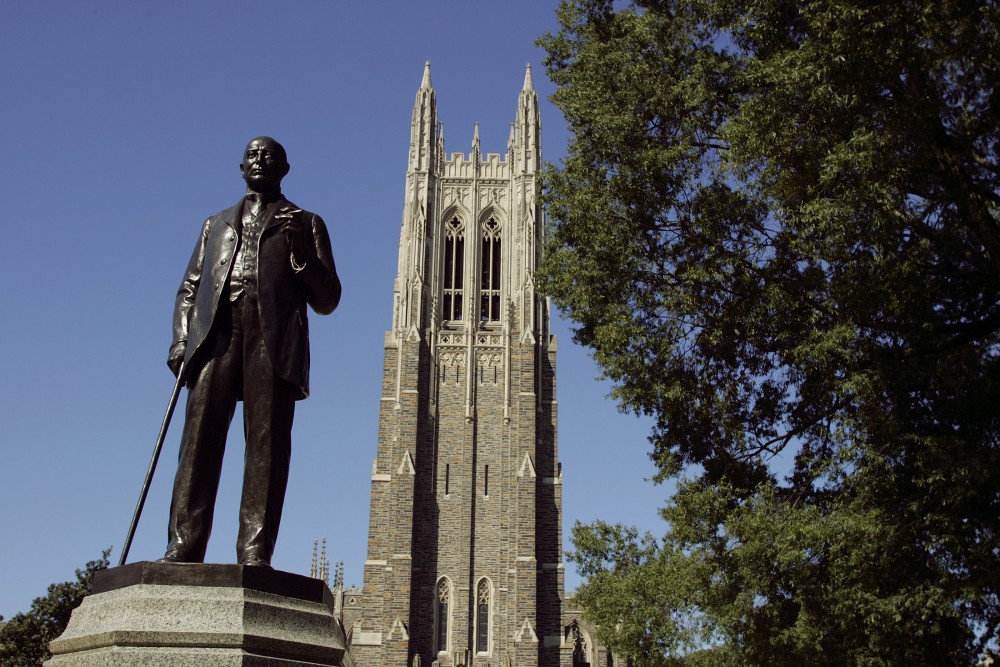By David Ranii
The News & Observer (Raleigh, N.C.)
DURHAM
Duke University has created two investment vehicles that, if all goes according to plan, will be capable of investing a total of up to $3 million in startups created by Duke students, alumni, faculty and staff.
The new Duke Angel Network announced Wednesday will consist of university alumni interested in providing seed capital for such startups and, ultimately, making a profit on those investments.
Eric Toone, vice provost and director of the university’s Innovation and Entrepreneurship Initiative, said the goal is to have 50 Duke alumni on board by the end of this year and 100 by the end of 2016.
“I think that is eminently achievable,” he said.
Duke also unveiled a new Duke Innovation Fund that will invest alongside the Duke Angel Network. The Innovation Fund typically will invest $1 for every $3 invested by the network, Toone said.
Duke has made an initial commitment of $2 million for the Innovation Fund and is seeking donors who will provide additional funding.
“$20 million is our starting goal,” Toone said.
“Duke is in the midst of a $3.5 billion (capital) campaign,” he added. “We’ll get it done.”
Although the Angel Network is a for-profit initiative, the Innovation Fund is philanthropic. Toone said the Innovation Fund was conceived as a philanthropy because that will make it easier to raise funds given that donors will be able to claim tax breaks.
The two investment vehicles are needed because it is notoriously difficult for early-stage companies to raise the seed capital they need to nurture their concepts, Toone said.
“It’s a new way for universities to support innovation” and commercialize technology and ideas coming out of the university, Toone said.
Duke isn’t the only local university tackling the lack of sufficient funding for early-stage companies. In January, UNC-Chapel Hill created the Carolina Research Venture Fund, a $5 million fund to help startups commercialize technology developed at that university.
“Universities appreciate the fact they have a great asset in their intellectual property and in the very smart people that are part of their community,” said Joan Siefert Rose, president of CED, a Triangle-based support group for entrepreneurs.
As for the new Duke Angel Network, Rose said: “The great potential here is to unlock all of that untapped potential of the Duke alumni, which is huge. There are so many Duke alums represented in entrepreneurship, in running large entrepreneurial companies, in venture capital, in investment banking.”
Kip Frey, CEO of Durham’s Dognition as well as director of the Program in Law & Entrepreneurship at Duke’s law school, said that the Angel Network “isn’t just a matter of funding.”
Rather, said Frey, the angels who join the network also will assist their portfolio companies in a variety of ways, such as serving as mentors and plugging them into their networks. Frey is also a member of the Duke Angel Network’s steering committee.
The Duke Angel Network isn’t a fund per se. Rather, it’s an aggregation of angel investors with Duke ties who will scrutinize investment opportunities brought to their attention by the Angel Network and will then decide whether to invest, and how much, on a case-by-case basis.
“We hope to be able to do, at least for a start, three of four deals a year,” Toone said. “We hope to do our first deals perhaps as early as later this spring.”
Toone said Duke has brought on board a seasoned investor who has ties to the university to run the network, but isn’t yet disclosing who that individual is while they wind down their involvement with a Triangle investment firm.
Crucial to making deals happen will be the emergence of a “lead angel” who is particularly interested in a deal and will shepherd it through the due diligence process to ensure that it is truly investment-worthy, Toone said.
The Angel Network and Innovation Fund will consider investments in Duke-related startups anywhere in the U.S.
“Ultimately, what makes an angel network successful is to have successful investments,” Toone said. “And to have successful investments, you want to cast your net as broadly as you possibly can.”
That said, Toone added that the two investment vehicles will help address “the absolute dearth of investment capital in the Southeast.”














































































































































































































































































































































































